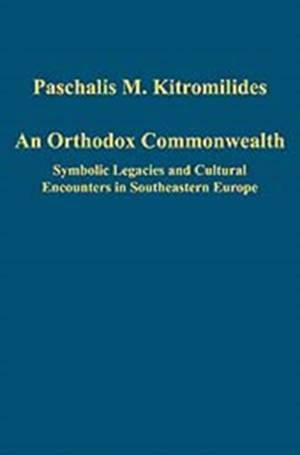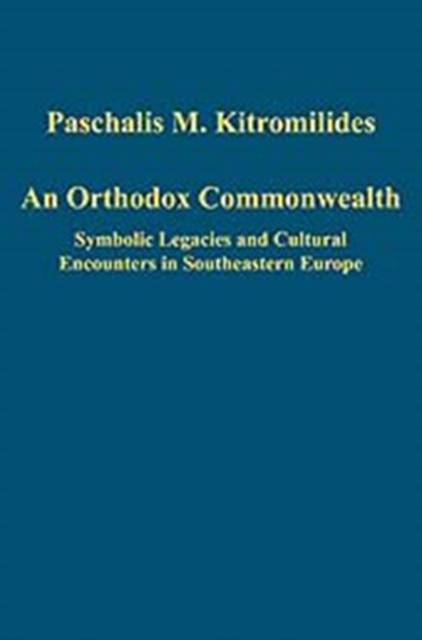
Door een staking bij bpost kan je online bestelling op dit moment iets langer onderweg zijn dan voorzien. Dringend iets nodig? Onze winkels ontvangen jou met open armen!
- Afhalen na 1 uur in een winkel met voorraad
- Gratis thuislevering in België vanaf € 30
- Ruim aanbod met 7 miljoen producten
Door een staking bij bpost kan je online bestelling op dit moment iets langer onderweg zijn dan voorzien. Dringend iets nodig? Onze winkels ontvangen jou met open armen!
- Afhalen na 1 uur in een winkel met voorraad
- Gratis thuislevering in België vanaf € 30
- Ruim aanbod met 7 miljoen producten
Zoeken
An Orthodox Commonwealth
Symbolic Legacies and Cultural Encounters in Southeastern Europe
Paschalis M Kitromilides
€ 198,95
+ 397 punten
Omschrijving
This collection brings together fifteen studies on the survival and adaptation of the Orthodox religious and cultural tradition in the societies of Southeastern Europe after the fall of Constantinople, a world so often misunderstood and misinterpreted. This problem of cultural history is examined in a diversity of contexts and on multiple levels of analysis in order to elucidate issues of broader concern to social theory such as the fluidity and dynamic character of identity, the intricate encounter of religion and politics and the challenge of secular world views such as the Enlightenment and nationalism to traditional religious outlooks. The author argues consistently against all forms of reductionism, converses at length with the sources in order to pose questions to conventional views and invites the historical imagination to recover and understand a world submerged by the nationalist interpretation of the past. This task involves the recovery of the geographical pluralism that made Orthodox culture a truly transnational phenomenon. The collection accordingly brings into focus both the epicentres of Orthodox culture and symbolism such as Mt Athos and Constantinople, but also its hinterlands in Asia Minor and the Balkans.
Specificaties
Betrokkenen
- Auteur(s):
- Uitgeverij:
Inhoud
- Aantal bladzijden:
- 276
- Taal:
- Engels
- Reeks:
- Reeksnummer:
- nr. 891
Eigenschappen
- Productcode (EAN):
- 9780754659631
- Verschijningsdatum:
- 28/11/2007
- Uitvoering:
- Hardcover
- Formaat:
- Genaaid
- Afmetingen:
- 149 mm x 224 mm
- Gewicht:
- 539 g

Alleen bij Standaard Boekhandel
+ 397 punten op je klantenkaart van Standaard Boekhandel
Beoordelingen
We publiceren alleen reviews die voldoen aan de voorwaarden voor reviews. Bekijk onze voorwaarden voor reviews.











